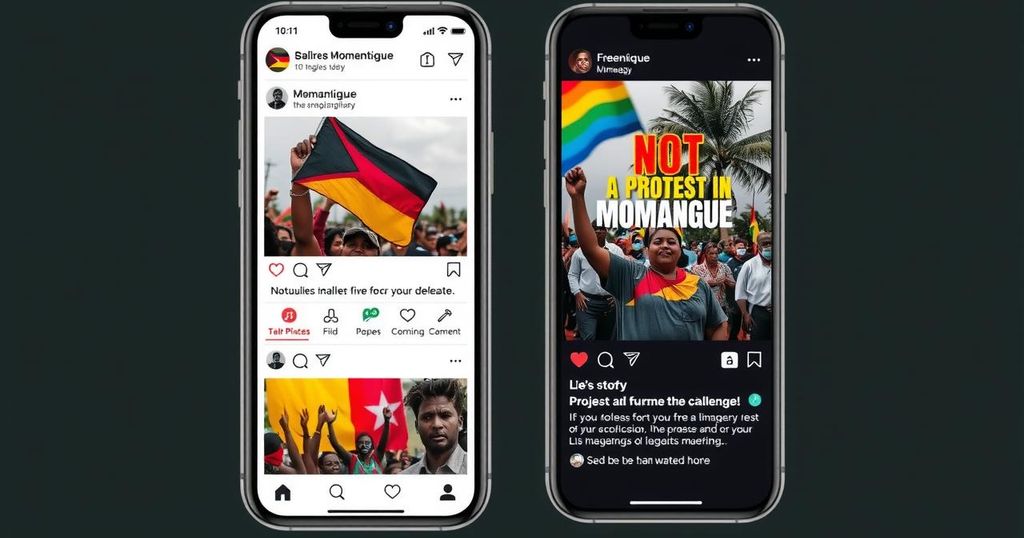Internet Blackout in Mozambique Amidst Election Protests

Social media services in Mozambique have been suspended due to nationwide protests against the disputed results of the October 9 general elections. The ruling party’s candidate, Daniel Chapo, was declared the winner, leading to demonstrations and violence resulting in multiple casualties. NetBlocks confirmed these social media restrictions initiated on Thursday amid threats of civil unrest.
Social media access in Mozambique has been interrupted due to protests triggered by disputes over the results of the general elections held on October 9. As reported by NetBlocks, a global internet watchdog, citizens across the country are experiencing significant restrictions, particularly on platforms such as Facebook, WhatsApp, and Instagram. This connectivity disruption began early Thursday, coinciding with the commencement of a planned weeklong strike called by opposition leaders dissatisfied with the electoral outcomes. The unrest follows the electoral commission’s announcement declaring Daniel Chapo, the candidate from the ruling Frelimo party, as the victor of the poll with 71% of the votes. His opposition, Venancio Mondlane, received 20%. The announcement spurred calls for nationwide protests disputing the credibility of the election results. NetBlocks confirmed that this was not the first incident of internet restrictions, noting a temporary blackout that occurred one day after the elections, which resulted in a severe loss of mobile internet connectivity throughout the country. Human Rights Watch has reported alarming statistics relating to violence during the aftermath of the elections, with at least 11 lives lost and over 50 injuries reported across various regions of Mozambique between October 24 and 25. In anticipation of the protests, local police have proactively communicated warnings to residents against engaging in actions considered to be acts of sabotage. This sequence of events highlights the evolving situation in Mozambique, where political tensions are manifesting online and offline, leading to restrictions on communication as a means to manage public dissent. The immediate future remains uncertain as citizens align themselves either in support of or against the electoral proceedings.
Mozambique has recently experienced political turmoil following the general elections held on October 9, 2023. The electoral process has raised significant disputes, particularly regarding the legitimacy of the results and the subsequent reactions from opposition leaders and citizens alike. The abrupt internet restrictions imposed by the government amidst a growing culture of protests reflect ongoing efforts to control the narrative and maintain order in a climate marked by violence and civil unrest. The events are further complicated by the historical tensions between the ruling party and various opposition factions in the region, leaving many citizens anxious over both their safety and democratic processes.
In conclusion, the situation in Mozambique exemplifies the complexities faced by nations undergoing electoral disputes, with social media access serving as both a vital means of communication and a tool of governmental control. The rising violence and political tensions underscore the urgent need for dialogue and peace-building measures. Citizens are left grappling with the implications of these developments, and the international community closely monitors their unfolding.
Original Source: www.aa.com.tr








